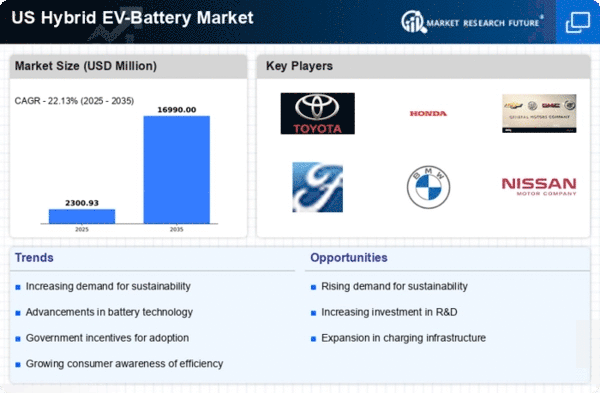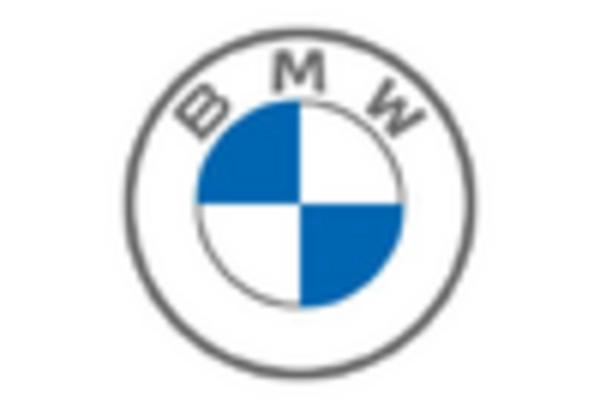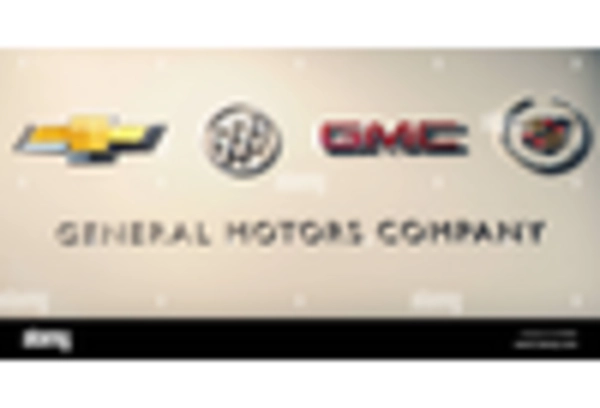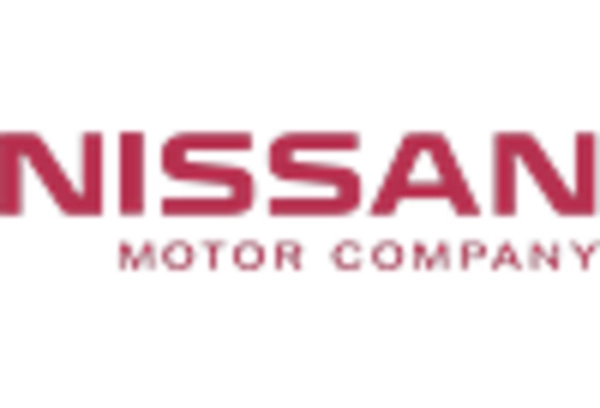Rising Fuel Prices
The hybrid ev-battery market is experiencing a notable surge in demand, driven by the rising fuel prices in the US. As gasoline prices fluctuate, consumers are increasingly seeking alternatives that offer better fuel efficiency and lower operating costs. Hybrid vehicles, equipped with advanced battery technology, provide a compelling solution. In 2025, the average price of gasoline is expected to reach approximately $4.00 per gallon, prompting consumers to consider hybrid options that can reduce fuel expenses by up to 30%. This shift in consumer behavior is likely to bolster the hybrid ev-battery market, as manufacturers respond to the growing demand for more efficient vehicles.
Environmental Regulations
The hybrid ev-battery market is significantly influenced by stringent environmental regulations imposed by federal and state governments. In an effort to combat climate change, regulations are becoming increasingly rigorous, mandating lower emissions from vehicles. For example, California's Clean Air Act aims to reduce greenhouse gas emissions by 40% by 2030. Such regulations encourage manufacturers to invest in hybrid technology, as these vehicles typically produce fewer emissions compared to conventional gasoline-powered cars. Consequently, the hybrid ev-battery market is poised for growth as automakers adapt to comply with these environmental standards.
Technological Innovations
Technological innovations play a pivotal role in shaping the hybrid ev-battery market. Continuous advancements in battery chemistry, energy density, and charging infrastructure are enhancing the performance and appeal of hybrid vehicles. For instance, the introduction of lithium-silicon batteries is expected to increase energy density by 20% compared to traditional lithium-ion batteries. This improvement not only extends the driving range of hybrid vehicles but also reduces charging times, making them more convenient for consumers. As these innovations proliferate, they are likely to attract a broader customer base, thereby stimulating growth in the hybrid ev-battery market.
Consumer Awareness and Education
Consumer awareness and education regarding the benefits of hybrid vehicles are crucial drivers for the hybrid ev-battery market. As more information becomes available about the advantages of hybrid technology, including lower emissions and fuel savings, consumers are becoming more inclined to consider these vehicles. Educational campaigns by manufacturers and environmental organizations are helping to dispel myths surrounding hybrid technology. In 2025, surveys indicate that 65% of potential car buyers are aware of the benefits of hybrid vehicles, which is likely to translate into increased sales and market growth for the hybrid ev-battery market.
Investment in Charging Infrastructure
Investment in charging infrastructure is a critical factor influencing the hybrid ev-battery market. The expansion of charging stations across urban and rural areas is essential for supporting the adoption of hybrid vehicles. In 2025, the US government has allocated $2 billion for the development of charging networks, aiming to increase accessibility for consumers. This investment is expected to alleviate range anxiety, a common concern among potential hybrid vehicle buyers. As charging infrastructure improves, it is likely to enhance the attractiveness of hybrid vehicles, thereby driving growth in the hybrid ev-battery market.
















